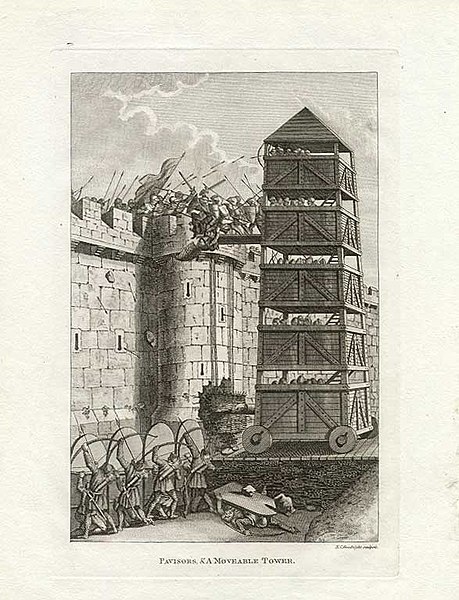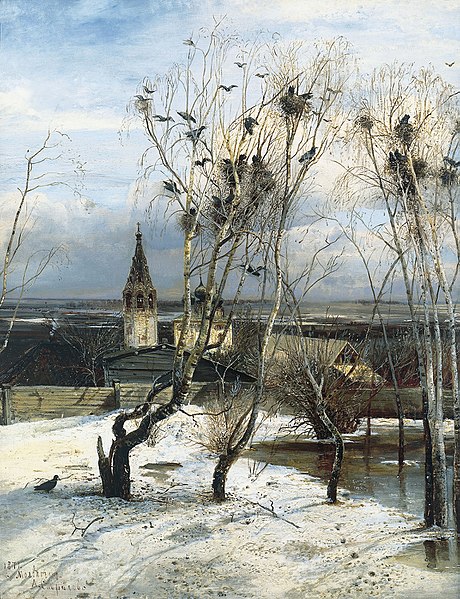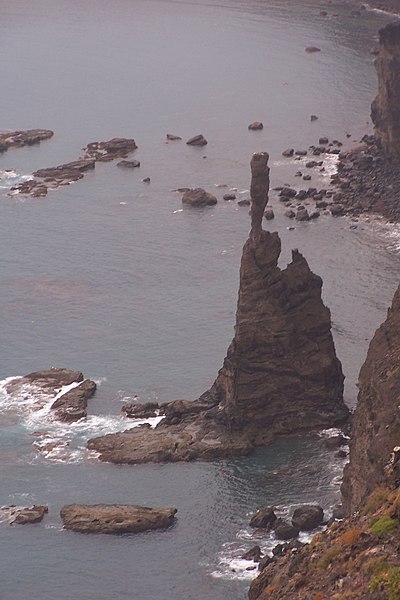Page 1 of 2
APOD: Milky Way and Stone Tree (2013 Apr 29)
Posted: Mon Apr 29, 2013 4:09 am
by APOD Robot
 Milky Way and Stone Tree
Explanation:
Milky Way and Stone Tree
Explanation: What's that next to the Milky Way? An unusual natural rock formation known as
Roque Cinchado or Stone Tree found on the
Spanish Canary Island of
Tenerife. A
famous icon,
Roque Cinchado is likely a
dense plug of cooled volcanic magma that remains after softer surrounding
rock eroded away. Majestically, the
central band of our
Milky Way Galaxy is visible
arcing across the right of the above seven image panoramic mosaic taken during the summer of 2010. On the far right is the
Teide volcano complete with a
lenticular cloud hovering near its peak. �
[/b]
Re: APOD: Milky Way and Stone Tree (2013 Apr 29)
Posted: Mon Apr 29, 2013 4:14 am
by Beyond
The Stone Tree has no pebble leaves.
Re: APOD: Milky Way and Stone Tree (2013 Apr 29)
Posted: Mon Apr 29, 2013 4:32 am
by ddale51
Sirius doesn't belong there; it should be Vega, right? Unless there was some cosmic cataclysm I don't know about or people who decided that Pluto isn't a planet (which I agree with, btw) also decided to switch a few stars' names around, just for fun.
Re: APOD: Milky Way and Stone Tree (2013 Apr 29)
Posted: Mon Apr 29, 2013 4:37 am
by booky1@earthlink.net
Yes, Vega, not Sirius.
Re: APOD: Milky Way and Stone Tree (2013 Apr 29)
Posted: Mon Apr 29, 2013 5:14 am
by Ann
Yes, that's Vega in splendid isolation below the Milky Way arch. Note the pink North America Nebula at top. To the right of it is a pink nebula that I think is IC 1396. At far right, the Andromeda galaxy is just peeking in.
What a nice picture!
Ann
Re: APOD: Milky Way and Stone Tree (2013 Apr 29)
Posted: Mon Apr 29, 2013 5:19 am
by Felipe
Would be really beautiful without the huge, ugly logo. :p
Re: APOD: Milky Way and Stone Tree (2013 Apr 29)
Posted: Mon Apr 29, 2013 7:59 am
by fausto.lubatti
Great panorama!
Re: APOD: Milky Way and Stone Tree (2013 Apr 29)
Posted: Mon Apr 29, 2013 9:05 am
by Daniel López
I´m sorry, It was my mistake. I sent them the wrong image. Already corrected and I will send the correct photo:
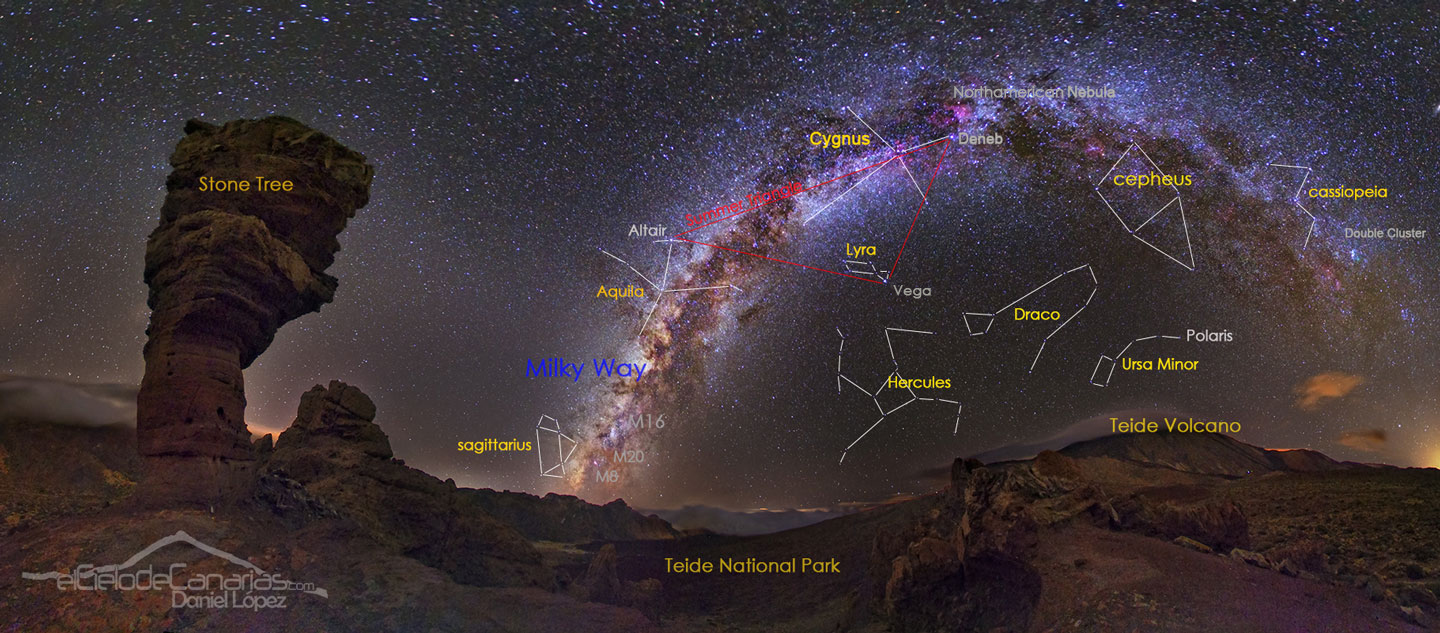
Re: APOD: Milky Way and Stone Tree (2013 Apr 29)
Posted: Mon Apr 29, 2013 9:33 am
by Willy
Very impressive picture,
I'm sure this one, printed at the same size as
the monster-pic you show here, would be at least as impressive.
Felipe wrote:Would be really beautiful without the huge, ugly logo. :p
Ugly logo?
It's a nice logo which fits in nicely without disturbing me. I'm sure the author has more than plenty of reasons for wanting to have his mark in his picture.
Re: APOD: Milky Way and Stone Tree (2013 Apr 29)
Posted: Mon Apr 29, 2013 9:51 am
by Daniel López
Re: APOD: Milky Way and Stone Tree (2013 Apr 29)
Posted: Mon Apr 29, 2013 9:58 am
by MargaritaMc
Daniel López wrote:I´m sorry, It was my mistake. I sent them the wrong image. Already corrected and I will send the correct photo:

It is an absolutely beautiful image, Daniel. I can vividly recall the sense of amazement I had when, visiting Tenerife for the first time nearly fifteen years ago, (and then knowing
nothing about the island other than it was warmer than England

) I first visited Teide. And your images - here and on your website - capture this other-worldly beauty extraordinarily well.
Oh - I live on Tenerife now!
Margarita
Re: APOD: Milky Way and Stone Tree (2013 Apr 29)
Posted: Mon Apr 29, 2013 12:37 pm
by jambo
My command of Spanish is not fluent, but I think a literal translation of Roque Cinchado--belted (or banded) rook (as in the chess piece)--is much more descriptive than Stone Tree.
Re: APOD: Milky Way and Stone Tree (2013 Apr 29)
Posted: Mon Apr 29, 2013 1:35 pm
by MargaritaMc
jambo wrote:My command of Spanish is not fluent, but I think a literal translation of Roque Cinchado--belted (or banded) rook (as in the chess piece)--is much more descriptive than Stone Tree.
Do you know - you are correct! I have lived on Tenerife for five years and speak pretty good Spanish, but had just
assumed that roque = rock!

Despite the fact that I've never heard it used as that in everyday speech. So I'd translated this mentally as 'the belted rock'. But when I checked the dictionary just now, it is the word for the Rook, or what I term 'the Castle', in Chess. It's such a good name for this rock!
Margarita
Re: APOD: Milky Way and Stone Tree (2013 Apr 29)
Posted: Mon Apr 29, 2013 1:53 pm
by jsmunroe
Roque Cinchado doesn't mean stone tree. Not in Spanish at least.
Re: APOD: Milky Way and Stone Tree (2013 Apr 29)
Posted: Mon Apr 29, 2013 2:46 pm
by Willy
The Roque Cinchado has other names in Spanish, it's also called "Árbol de Piedra" or "Dedo de Dios".
The former means "Stone Tree" and the lather means "God's Finger".
Btw. Before we were forced into worshipping the Euro as our monetary unit this natural monument appeared on our 1.000 peseta bills.
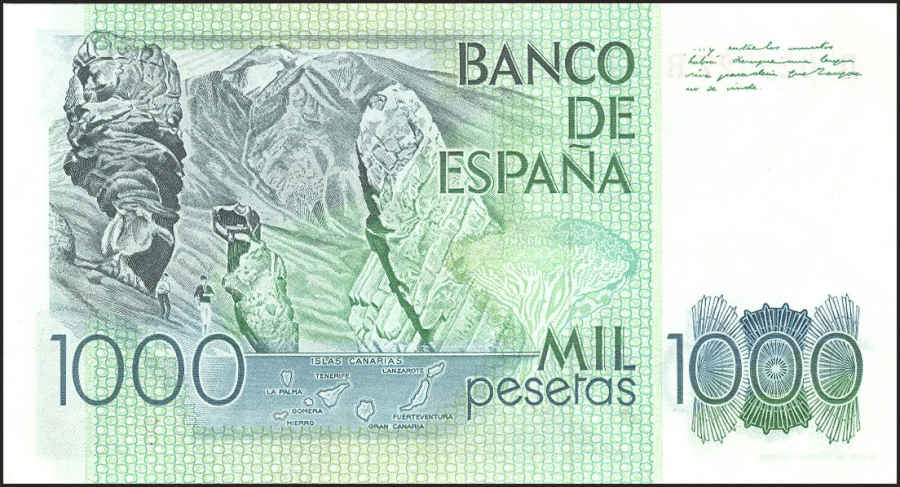
Re: APOD: Milky Way and Stone Tree (2013 Apr 29)
Posted: Mon Apr 29, 2013 3:11 pm
by RJN
ddale51 wrote:Sirius doesn't belong there; it should be Vega, right? Unless there was some cosmic cataclysm I don't know about or people who decided that Pluto isn't a planet (which I agree with, btw) also decided to switch a few stars' names around, just for fun.
Yes. The main NASA APOD now incorporates this change. Thanks to you and everyone who pointed out this oversight! And thanks to Daniel for quickly posting a revised annotation.
- RJN
Re: APOD: Milky Way and Stone Tree (2013 Apr 29)
Posted: Mon Apr 29, 2013 3:52 pm
by Mountainjim
I should have looked at the discussion sooner. I must have spent an hour trying to find other pictures that showed sirius there! I'm pretty green when it comes to star maps but I knew something was wrong. Great Picture!
Re: APOD: Milky Way and Stone Tree (2013 Apr 29)
Posted: Mon Apr 29, 2013 4:36 pm
by neufer
Willy wrote:MargaritaMc wrote:jambo wrote:
I think a literal translation of Roque Cinchado--belted (or banded) rook (as in the chess piece)--is much more descriptive than Stone Tree.
Do you know - you are correct!
The Roque Cinchado [is] also called "Árbol de Piedra"/"Stone Tree" or "Dedo de Dios"/"God's Finger."
Re: APOD: Milky Way and Stone Tree (2013 Apr 29)
Posted: Mon Apr 29, 2013 4:40 pm
by LocalColor
Beautiful photo - thank you Daniel López.
Re: APOD: Milky Way and Stone Tree (2013 Apr 29)
Posted: Mon Apr 29, 2013 4:53 pm
by Boomer12k
Great picture, I always like having a picture annotated, so I know what is there. It is interesting that the Milky Way is so.."bent" looking. Never realized, for instance, that when I was looking at Cassiopeia, I was looking at a part of the Milky Way. I just don't have a dark enough sky.
Margarita...Tenerife certainly has some spectacular features. If I go to the east, up into the foot hills, we have a ROCK....it looks like a Man in a Space Helmet. So, the Banded Rook, is interesting.
I was going over to a friend's house in a town to the east...as I was traveling, I saw a Lenticular Cloud, over the mountains...it had 3 disk like layers. Did not have my camera...

I learn so many things from APOD!!!!



:---[===] *
Re: APOD: Milky Way and Stone Tree (2013 Apr 29)
Posted: Mon Apr 29, 2013 4:54 pm
by neufer
MargaritaMc wrote:jambo wrote:
I think a literal translation of Roque Cinchado--belted (or banded) rook (as in the chess piece)--is much more descriptive than Stone Tree.
Do you know - you are correct! I have lived on Tenerife for five years and speak pretty good Spanish, but had just
assumed that roque = rock!

Despite the fact that I've never heard it used as that in everyday speech. So I'd translated this mentally as 'the belted rock'. But when I checked the dictionary just now, it is the word for the Rook, or what I term 'the Castle', in Chess. It's such a good name for this rock!
http://en.wikipedia.org/wiki/Rook_%28chess%29 wrote:
<<A rook (
♖ ♜ borrowed from Persian رخ rokh, Sanskrit रथ rath, "chariot") is a piece in the strategy board game of chess. Formerly the piece was called the castle, tower, marquess, rector, and comes (Sunnucks 1970). Rooks usually are similar in appearance to small castles, and as a result a rook is sometimes called a "castle." This usage was common in the past ("The Rook, or Castle, is next in power to the Queen" – Howard Staunton, 1847) but today it is rarely if ever used in chess literature or among players, except in the expression "castling."
In the medieval shatranj, the rook symbolized a chariot. The Persian word rukh means chariot (Davidson 1949:10), and the corresponding pieces in Oriental chess games such as xiangqi and shogi have names also meaning chariot (車).
Persian war chariots were heavily armoured, carrying a driver and at least one ranged-weapon bearer, such as an archer. The sides of the chariot were built to resemble fortified stone work, giving the impression of small, mobile buildings, causing terror on the battlefield. However, in the West the rook is almost universally represented as a crenellated turret. (One possible explanation is that when the game was imported to Italy, the Persian rukh became the Italian word rocca, meaning fortress. Another possible explanation is that rooks represent siege towers – the piece is called torre, meaning tower, in Italian, Portuguese, and Spanish; tour in French; toren in Dutch; Turm in German; and Torn in Swedish. An alternative name in Russian: Тура (pronounced as Toura). Finally, the chariot was sometimes represented as a silhouette, a square with two points above representing the horse's heads, which may have been seen to resemble a building with arrowports to the medieval imagination.) An exception is seen in the British Museum's collection of the medieval Lewis chess pieces in which the rooks appear as stern warders or wild-eyed Berzerker warriors.
The Russian name for the rook (ladya) means a sailing boat or longship of Northern cultures such as the Vikings.>>
Re: APOD: Milky Way and Stone Tree (2013 Apr 29)
Posted: Mon Apr 29, 2013 5:14 pm
by neufer
DAVID COPPERFIELD
By Charles Dickens
'In the name of Heaven,' said Miss Betsey, suddenly, 'why Rookery?'
'Do you mean the house, ma'am?' asked my mother.
'Why Rookery?' said Miss Betsey. 'Cookery would have been more to the purpose, if you had had any practical ideas of life, either of you.'
'The name was Mr. Copperfield's choice,' returned my mother. 'When he bought the house, he liked to think that there were rooks about it.'
The evening wind made such a disturbance just now, among some tall old elm-trees at the bottom of the garden, that neither my mother nor Miss Betsey could forbear glancing that way. As the elms bent to one another, like giants who were whispering secrets, and after a few seconds of such repose, fell into a violent flurry, tossing their wild arms about, as if their late confidences were really too wicked for their peace of mind, some weatherbeaten ragged old rooks'-nests, burdening their higher branches, swung like wrecks upon a stormy sea.
'Where are the birds?' asked Miss Betsey.
'The—?' My mother had been thinking of something else.
'The rooks—what has become of them?' asked Miss Betsey.
'There have not been any since we have lived here,' said my mother. 'We thought—Mr. Copperfield thought—it was quite a large rookery; but the nests were very old ones, and the birds have deserted them a long while.'
'David Copperfield all over!' cried Miss Betsey. 'David Copperfield from head to foot! Calls a house a rookery when there's not a rook near it, and takes the birds on trust, because he sees the nests!'
Re: APOD: Milky Way and Stone Tree (2013 Apr 29)
Posted: Mon Apr 29, 2013 5:26 pm
by Willy
neufer wrote:Willy wrote:
The Roque Cinchado [is] also called "Árbol de Piedra"/"Stone Tree" or "Dedo de Dios"/"God's Finger."
Well,
according to the Wikipedia the "Roque Cichado" is also known as "Dedo de Dios", or God's Finger.
I'm not the person to say that either you or the Wikipedia is wrong but I must admit that between the both of you you got me confused.
Re: APOD: Milky Way and Stone Tree (2013 Apr 29)
Posted: Mon Apr 29, 2013 7:18 pm
by neufer
Willy wrote:
Well,
according to the Wikipedia the "Roque Cichado" is also known as "Dedo de Dios", or God's Finger. I'm not the person to say that either you or the Wikipedia is wrong but I must admit that between the both of you you got me confused.
I was relying upon my limited reading of:
http://lacomunidad.elpais.com/juan-manu ... -cinchado-
However, as par for the course, we are most likely
both wrong:
http://es.wikipedia.org/wiki/Dedo_de_Dios
http://www.elmundo.es/elmundo/2005/11/2 ... 64398.html
http://en.wikipedia.org/wiki/El_Dedo_de_Dios in 2005 wrote:
El Dedo de Dios (translated: God's finger) was a famous rock structure in the Atlantic Ocean, located in the northern part of Gran Canaria, one of the Canary Islands (Spain). During Tropical Storm Delta in November 2005, the thin top of the rocky monument was broken off and fell into the sea, destroying its unique characteristic that had the shape of a finger (hence the name "God's finger"). It was one of the many natural monuments of the Canary Islands located outside the coastal town of Agaete, at the north of Gran Canaria. The peculiarly shaped rock has been an inspiration to many artists, and it is believed that the author Domingo Doreste was the first to name it God's finger. The area is considered the oldest on Gran Canaria, and started to form around 14 million years ago. During a time span of 2-300,000 years, the oddly shaped monument was created from the basaltic materials in the area.
After losing "God's finger" investigations started on what should be done. Eventually, a commission of experts, set up by the town of Agaete, advised in March 2006 against reconstructing the natural monument and proposed to set up a plan for conserving what is left of the emblematic rock.>>
Re: APOD: Milky Way and Stone Tree (2013 Apr 29)
Posted: Mon Apr 29, 2013 9:38 pm
by Willy
God probably has (had?) more than one finger.

 Milky Way and Stone Tree
Milky Way and Stone Tree

